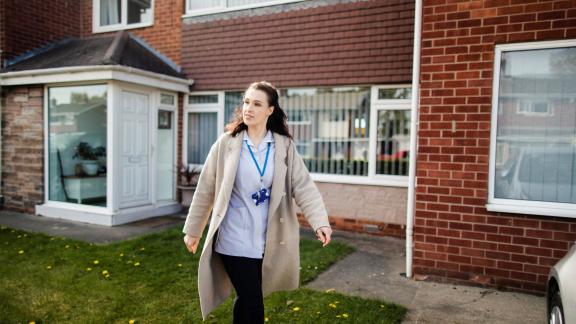How data and digital services can fight COVID-19

COVID-19 represents the biggest challenge to the NHS in its 70-year history. And while the main focus is on rapidly reconfiguring and equipping frontline services to cope, there are other tools that can help. Dr Shaun O’Hanlon, chief medical officer at EMIS Group, steers us through the maze of digital services available and highlights the power of data-sharing.
Digital services have a key role to play in the fight against COVID-19. NHSX, NHS England and NHS Improvement are pushing for rapid adoption of new ways of working, such as video or online consultations; NHSX has launched TechForce19 a £500,000 fund for quick turnaround tech innovations to support the elderly, vulnerable and self-isolating.
Here is some immediate advice on digital services – plus a rallying call for how data-sharing can help us understand this virus better, quickly.
Working differently: digital primary care comes of age
Tackling this crisis requires the rapid creation of new models of care – and digital services can deliver these.
Pop-up clinics, video-only surgeries, online triage – these are just some of the new ways of working that are being implemented as primary care services, in particular, reshape to meet the crisis. Many of the digital tools to deliver this already exist within systems familiar to clinicians – so there is minimal disruption to workflow.
Paperless working is revolutionising medicines management overnight. This week, 95 per cent of GP prescriptions were handled digitally; 31 million patients are now using electronic prescriptions.
This is a massive transformation – saving time for clinicians and patients and improving communication between GPs and pharmacies. The technology is being rapidly adopted beyond primary care, for example, in hospitals and care homes.
What can you do today?
Here are some immediate suggestions for what your organisations can do right now.
Online consultations are a simple but highly effective means of triaging demand; use is rising rapidly in GP practices as they focus on the most urgent cases only.
These work by providing patients with a clinically-authored, pre-built questionnaire that patients complete and GPs review, typically within 24 hours. One GP practice in Scotland is using it to give patients worried about coronavirus immediate support and advice – without needing to visit the practice.
It’s a win-win solution for stretched services and for patients – and there are plenty of use cases in community and secondary care too.
Video consultations are another digital service whose time has now come. Whereas clinicians have in the past been reluctant to use them (not time saving), they are now a vital tool to support social distancing.
There are plenty of solutions that will integrate directly with your existing systems and workflows; talk to your IT provider for help.
Informing and empowering patients
Let’s not forget the importance of signposting patients to trusted sources of information and advice. This is essential to address concerns and reduce unnecessary demand on frontline services.
NHS.UK and NHS 111 are of course the key channels, but patient services apps such as Patient Access (8.4 million registered users) are also seeing exponential demand.
Don’t forget your own websites too. Ask your communications teams how you can share the latest information for patients on your home page – and direct enquiries there to reduce pressure on phonelines.
The telephone remains a key channel for many, particularly those without access to a computer, tablet or smartphone, who include some of the NHS’s most vulnerable patients. Consider how you can configure your telephony to provide up-to-date recorded messages and information, and to help manage changes to appointment schedules.
Data – a powerful weapon
Let’s end with the big picture.
The battle to understand this virus isn’t confined to the laboratory. Live data from frontline clinicians also has a vital role to play – helping us to closely track its progress, its impact on individuals and how people respond to different interventions. It can also inform government strategy around public movement.
A new initiative from the Royal College of General Practitioners’ Research and Surveillance Centre at Oxford University has just launched with precisely this aim. It is urgently recruiting 300 GP practices around the country that will contribute patient data on respiratory infections, flu-like illness and suspected and confirmed COVID-19 cases.
This is a powerful example of how data-sharing – under strict governance guidelines – can inform healthcare and ultimately save lives. I believe this pandemic will be a milestone in changing attitudes towards data-sharing in healthcare.
Looking ahead
No one can predict the outcome of this pandemic. What I am sure of is that the UK’s health service will never be the same again – the wholescale adoption of digital technologies and use of powerful analytics will fundamentally change how we all work.
Dr Shaun O’Hanlon is chief medical officer at EMIS Group. Follow him on Twitter @drshaun and the organisation @EMISGroup



